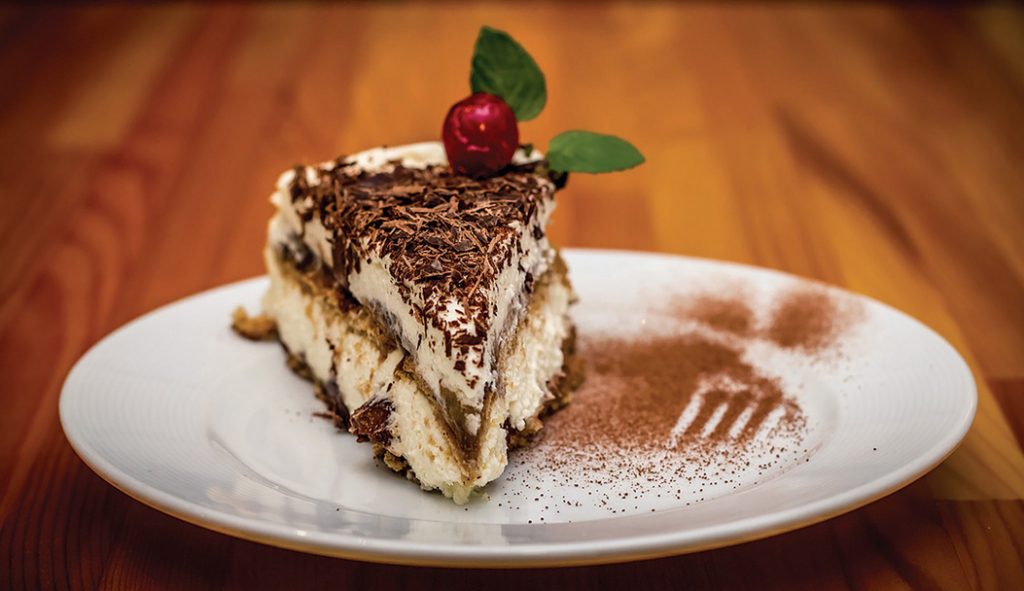Mindful eating means that you are aware of the thing you are eating and why. It helps you to listen to your body. Food is the fuel of our body, if we get hungry it means that we need more of this fuel. But these days we do not only use food as fuel, but for 100 other reasons such as stress, boredom, habit, coping or celebration. We are longing for food without the physical sensation of hunger, let’s call this ‘appetite’. With mindful eating you primarily focus on why you are eating something: are you physically hungry or are you just having an appetite for food? The latter is not a bad thing, because eating has an important role in social and cultural contexts, but it is good to be aware of this.
Awareness
Were you ever halfway your meal or snack when you suddenly realized: what am I eating, I am not even enjoying this. This is because we often eat on the automatic pilot, which makes us unaware of what we put in our mouth. With mindful eating you are truly noticing what you eat and giving your senses what they deserve by giving time and energy to taste a meal. You are adding something to a meal: attention. You can start really enjoying food if you are present with your attention. Attention makes your food more fun, surprising and special. You can amaze yourself over the little details: smell, color, and taste. In this way, every bite will become an amazing experience so you will feel both physically and mentally satisfied after a meal.
How do you eat mindful?
You can only know what mindful eating can mean for you if you try it. Eating mindful takes practice. Especially for fast eaters it can be tricky to slow down. To practice mindful eating, here is an exercise.
Primarily you will notice how much hunger your body has, is it hunger of appetite? Then you choose the food what you are in the mood for. You take a relative small portion. Focus on the moment and deeply breath in and out a couple of times. Ask yourself if you are willing to pause all your other activities, and really take the time for your food.
Then you observe your food, perceive the different colors and textures. How does it smell? Slowly take the first bite and savor this bite in your mouth without chewing. Do you notice that your hand knows exactly where your mouth is? How does the food feel in your mouth? Warm or cold? Firm or smooth? Consciously chew one time, what happens? What does your tongue do, what do you taste? Chew consciously and taste your food. Notice the change of the texture and taste of the food with every chewing movement. Chew at least 20 times before you swallow your bite. Swallow your food consciously. Take the next bite in the same way. And the next bite. And the next bite.
Try to notice that you start to feel satisfied, do not cross that line. When you are satisfied, stop eating. Evaluate how it was to eat mindful. Did you manage to focus your attention to the moment and your senses. Did you like it? Did you notice a difference with how you usually eat? Give yourself a compliment that you tried this exercise and took the time for it. Practice this exercise everyday or every other day. You can write down your findings to become aware of any changes in your attitude towards food. Perhaps you ate things you did not like without being aware of it? Or you enjoy your food more? Which bite is the best?
Tips to help you eat mindful
If you lack the time, you do not always have to go through the entire cycle of mindful eating. You can also use the separate parts of eating mindful to see which ones work for you. Below, you will find 5 tips. Try using them and see which one works for you.
- Make an intention to really taste your food and enjoy it in the current moment. Focussing your attention only works if you make a true intention.
- Use your senses to take in all the aspects of a meal, like color, texture, and smell.
- Pause between every bite by laying down your cutlery. Take a deep breath. In this break, try focussing on the taste and aftertaste of your food.
- Evaluate afterwards what you ate, how you ate it and how you experienced it.
Compliment yourself on taking the time to enjoy your food. You took a step in getting in touch with yourself and the wealth that a meal can offer you.
What if it fails?
Good news: it can’t! Mindful eating can not fail because there is nothing you have to do right. You only have to be aware of what is happening. You notice without judging. Notice how you eat, when there is attention and when there is not. Adjust your eating behavior to the circumstances: eat some more the one time, and a bit less the other time. When you enjoy immensely, do not worry about it, the next time will be different. Relax. Eating mindful does not strive for perfection, but for relaxation. If you strive for perfection, you will never be satisfied and the chance is bigger that you give up. We are curious about your experiences with eating mindful, tell us by leaving a comment below!
“When walking walk, when eating eat”
Goal: Write down in the “Feel Goal” what your first experiences are with eating mindful. What did you notice, what happened?











